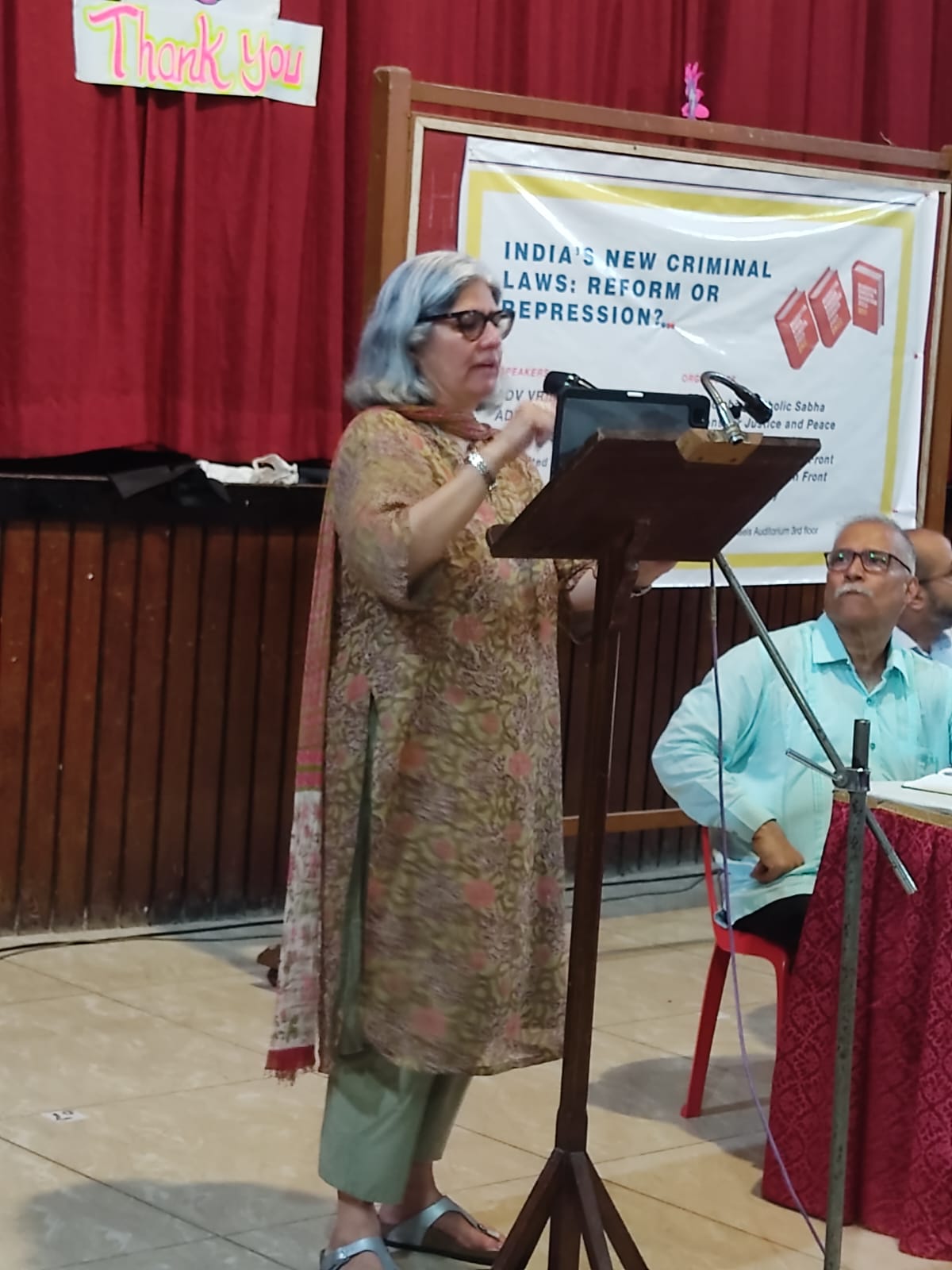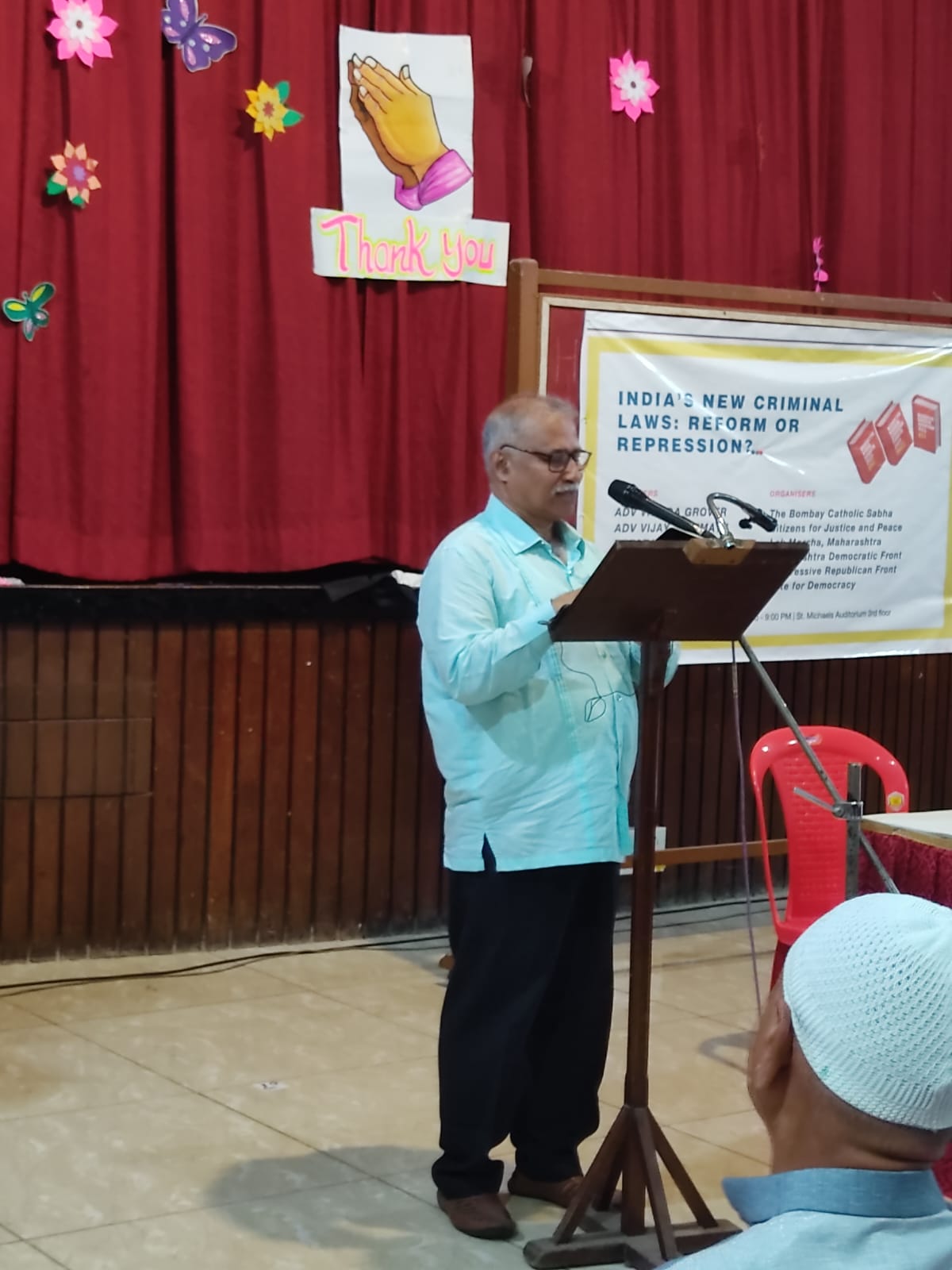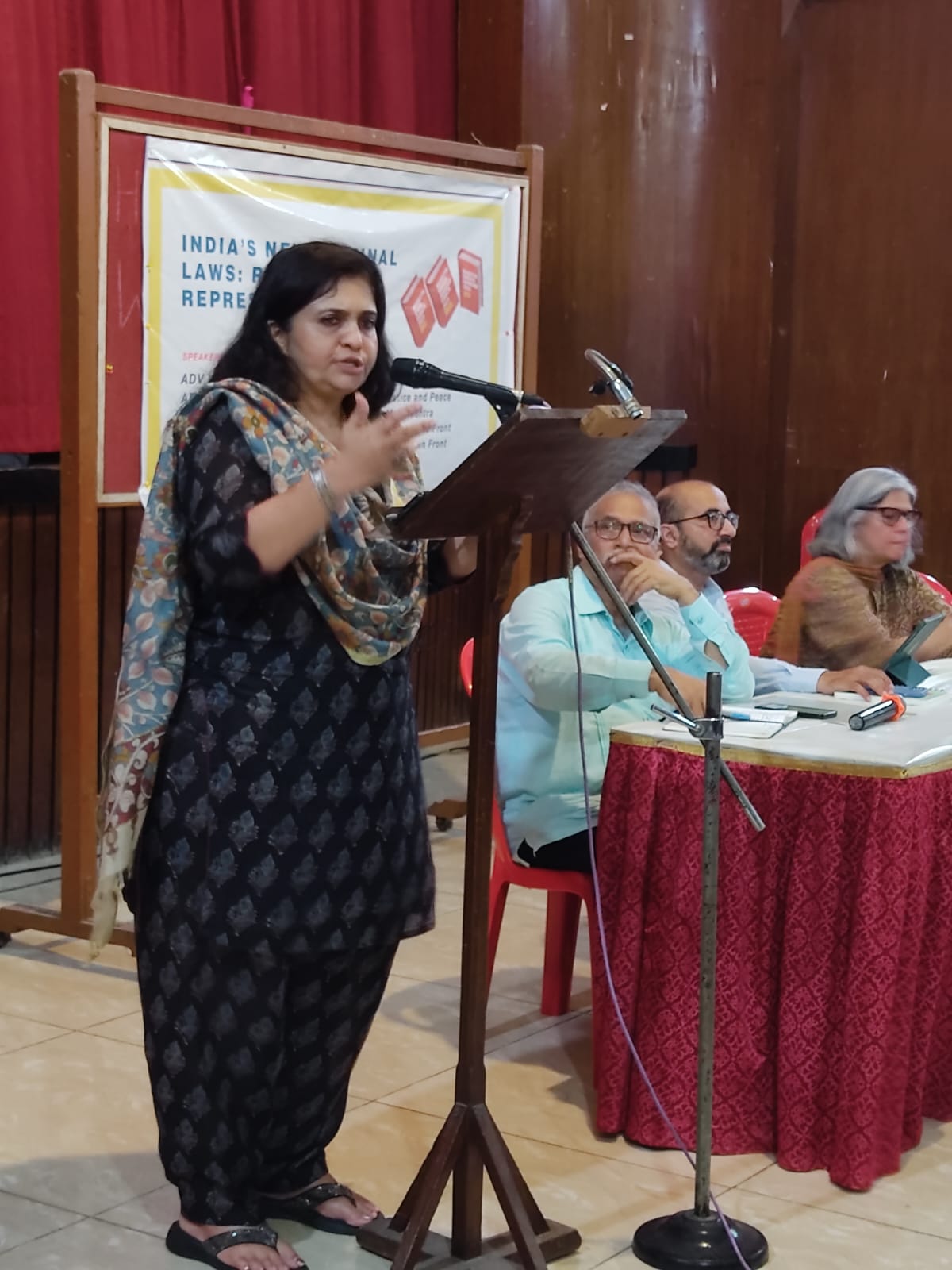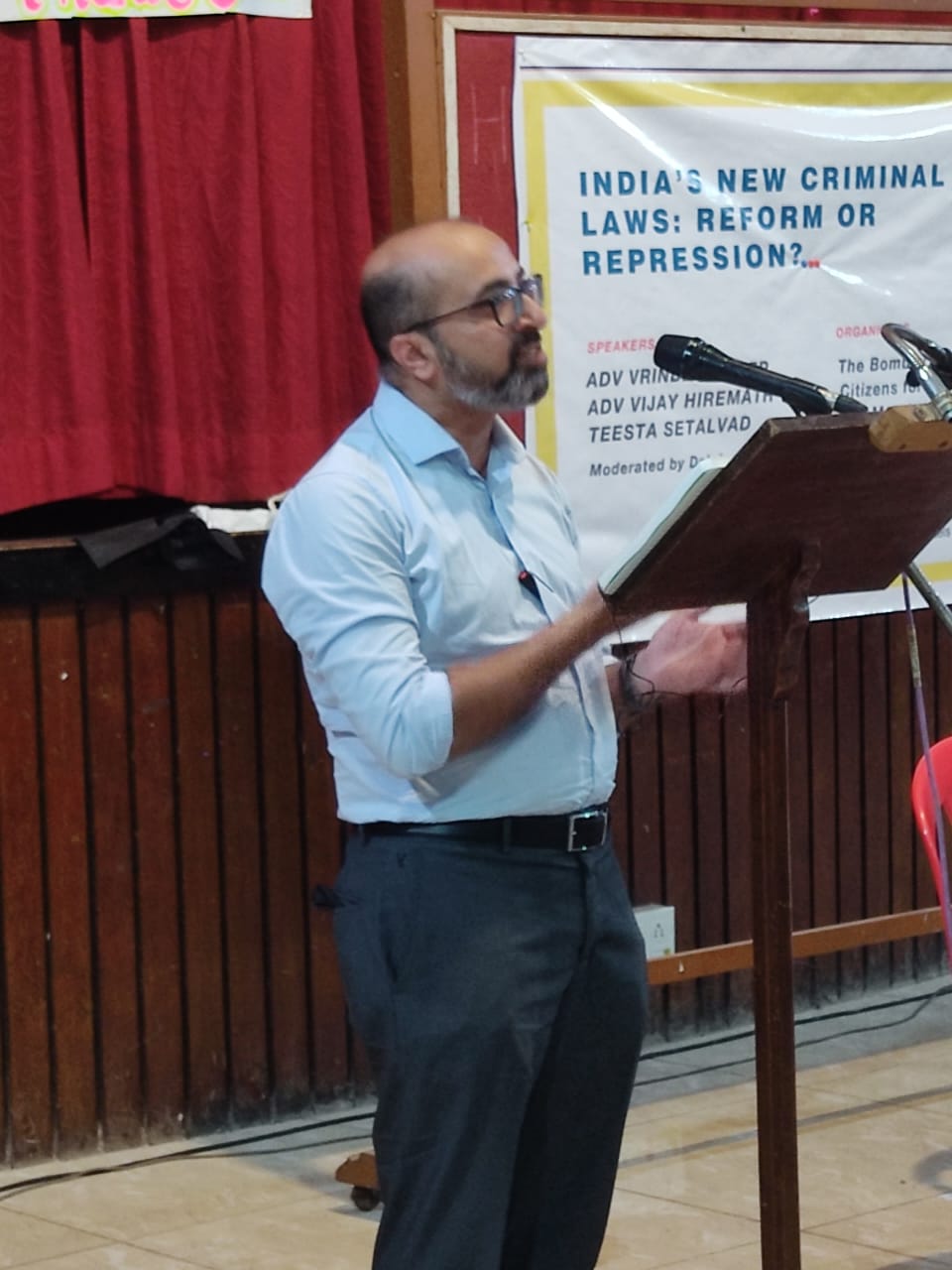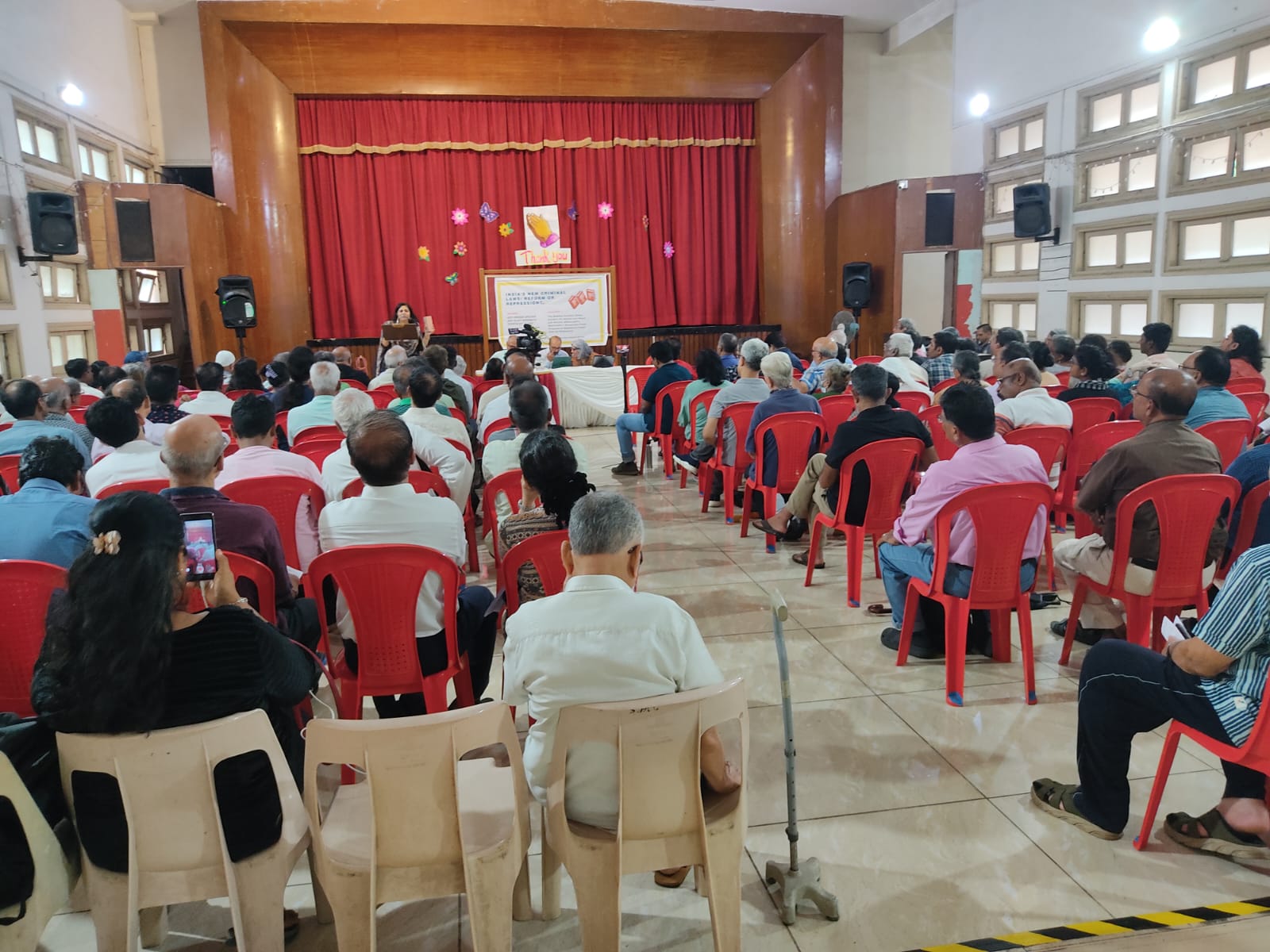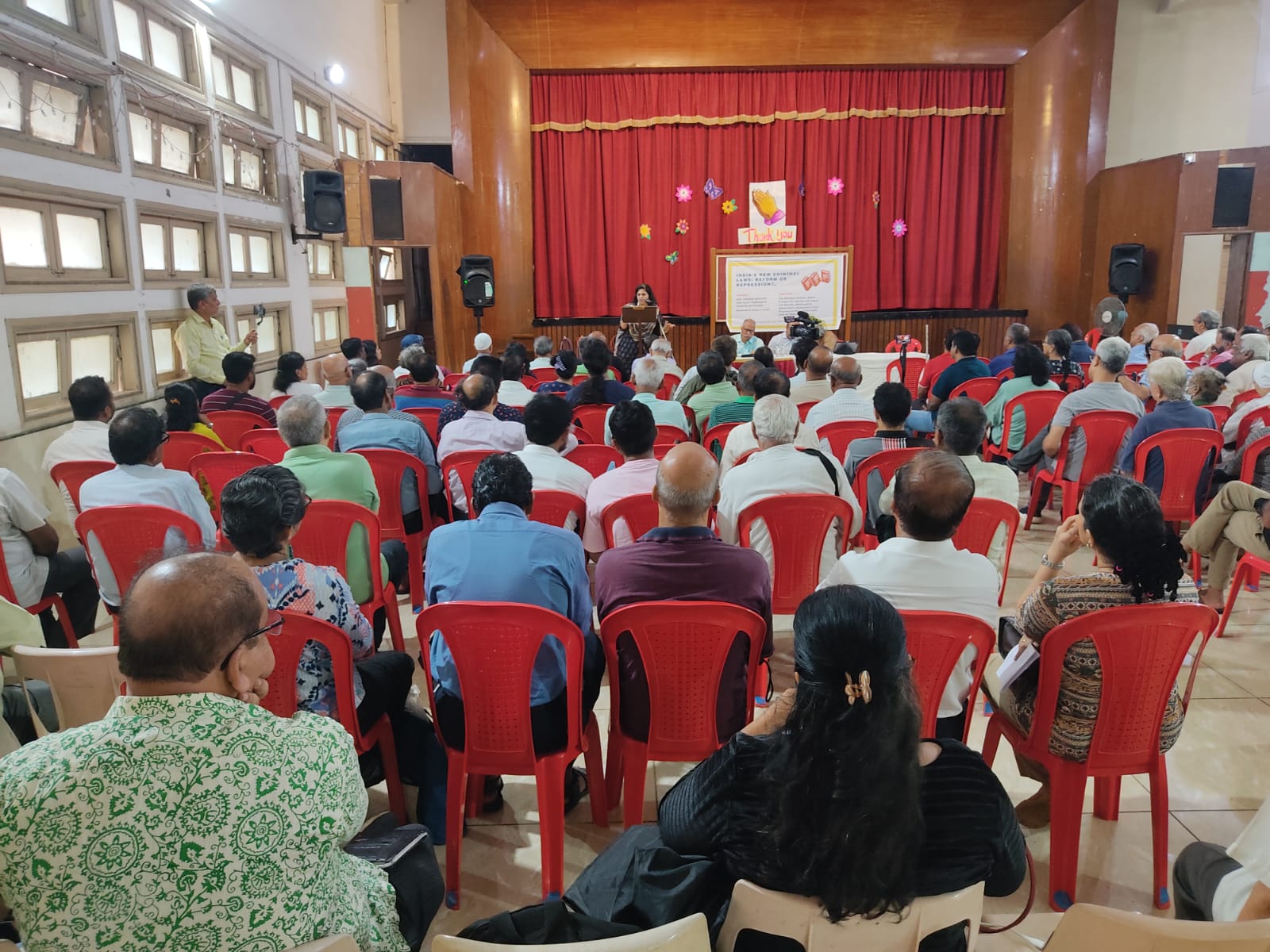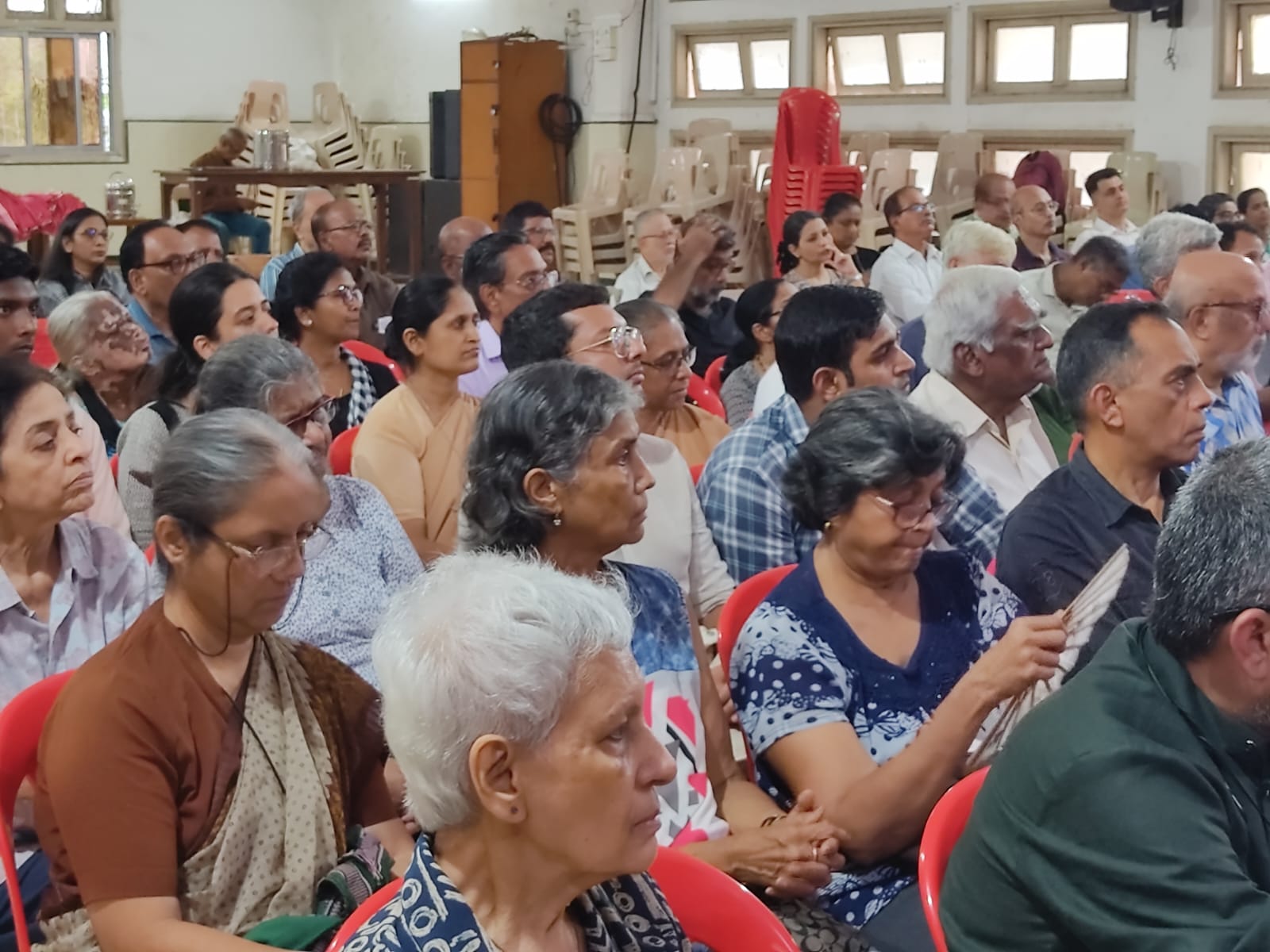On June 28, a discussion on the three criminal laws, which came into force on July 1, was organised at St Michael’s Church in Mahim, Mumbai. The three new criminal laws ‘Bharatiya Nagarik Suraksha Sanhita (BNSS) Act 2023’, ‘Bharatiya Nyaya Sanhita (BNS) Act 2023’ and ‘Bharatiya Sakshya Adhiniyam (BSA) Act 2023’ have replaced the Indian Penal Code, 1860, Code of Criminal Procedure and Indian Evidence Act. The event was jointly organised by the Bombay Catholic Sabha, Citizens for Justice & Peace, Lok Morcha, Progressive Republican Front and Vote for Democracy. The key speakers at the said event were Vrinda Grover, advocate Supreme Court, Vijay Hiremath, advocate, Bombay High Court and Teesta Setalvad, human rights defender and journalist.
The objective behind organising this event, which was named as “India’s New Criminal Laws: Reform or Repression?” was to analyse the three criminal laws and the impact that they would have on the working of the justice system and the people of India. Many have, including the three speakers, been criticising the new laws for being regressive and stringent, and for introducing such laws that will increase the power of the state to take arbitrary action against those dissenting.
At the event, many such provision were referred to and discussed in detail by the three speakers. Teesta Setalvad highlighted several provisions that provide draconian powers to the police, endanger the statutory right to bail, criminalise free speech (in a newly introduced provision that she described as “sedition plus” and also penalise, if not criminalise legitimate democratic protest. She further lamented the consciously absent safeguards against police abuse that are missing from the criminal laws. In addition to this, Setalvad spoke on the repacked, yet more stringent, version of sedition that has been introduced in the BNS, which will penalise as well as criminalise legitimate democratic protest.
Senior advocate Vrinda Grover came down heavily upon the claim of the union government’s that these laws will be the process of decolonisation needed by India. Calling the introduction of these law as regressive, she highlighted how the citizens of India have been turned from victims to suspects and mute spectators. She specifically spoke about the provision on expansion of the period of police custody through the BNSS, which could lead to increase in cases of intimidation, torture and coercion of the ones arrested.
Vijay Hiremath focussed on how under the guise of doing a copy-paste job, the union government has introduced many illogical and draconian legislations, which have granted unprecedented powers to the executive and the police officers. Hiremath further highlighted the issue of impossibility of filing complaints against any defaulting police officer, due to the rather sinister and confusing sections the BNSS has. Hiremath concluded ends by saying that these laws are extremely dangerous, and will make the whole of the country and its citizens a target.
Based on the concerns raised as well as the discussions that took place, those present at the gathering then passed a resolution to reinforce the persistent demands countrywide to defer the enforcement of these laws, citing sparked serious concerns about their constitutionality and their potential to erode the very foundation of India’s democracy. A Letter Petition campaign addressed to Prime Minister, Narendra Modi, and Leader of the Opposition, Rahul Gandhi and Supreme Court Bar Association (SCBA), Kapil Sibal was initiated. It is to be highlighted here that at the time of the event, the three laws has not come into force.
The letter petition can be viewed here:
A detailed press release of the event can be viewed here:
A pamphlet explaining the impact that these newly implemented three criminal laws will have on the fundamental rights guaranteed to individuals of India by the Constitutional were also made available at this event. The pamphlet explored the ways in these criminal laws go against Articles 14, 19 and 21 of the Constitution, commonly known as the golden triangle, and curtail rights and freedoms righted to dissent, peaceful protest, life, liberty and equality.
As highlighted in the pamphlet, here are some of the chilling features of the new Criminal Code that require special attention:
- the criminalisation of legitimate, lawful, non-violent democratic speech or action as ‘terrorism’;
- the broadening of the offence of sedition in a new and more vicious avatar (what could be called “sedition-plus”);
- the expansion of the potential for “selective prosecution” — targeted, politically- biased prosecution of ideological and political opponents;
- the criminalisation of a common mode of political protest against government through fasting;
- encouraging the use of force against any assembly of persons;
- exponentially enhancing ‘police raj’ by criminalising “resisting, refusing, ignoring or disregarding to conform to any direction given by [a police officer]”;
- enhancing handcuffing;
- maximising police custody during investigation;
- making the recording of a FIR discretionary for the police;
- dialling up the pain of imprisonment;
- compelling all persons (even those not accused of any crime) to provide their biometrics to the government; and
- Shielding of some of the Sangh Parivar’s activities.
The pamphlet can be viewed here:
New Criminal Laws
Related:
From colony to police state? India’s new criminal laws receive dissent


